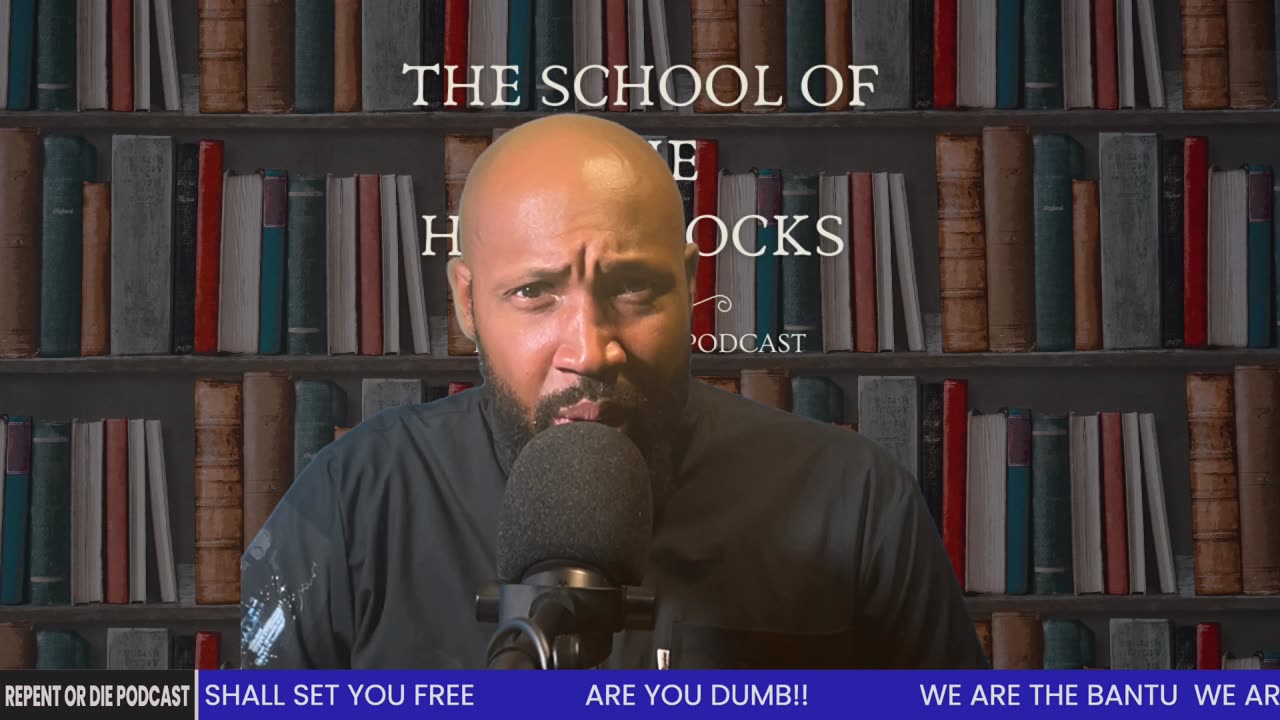Premium Only Content

💡 Revealing the Truth About African Involvement in the Slave Trade
The history of the transatlantic slave trade is a painful and complex one, and it is important to examine the role that Africans played in this trade. For too long, the narrative has been that Europeans were solely responsible for the slave trade, and that Africans were only victims. While it is true that European powers were ultimately responsible for the trade and its devastating consequences, it is also true that Africans were involved in various ways.
Africans were involved in the slave trade as both sellers and buyers of enslaved people. It is estimated that between 10 and 20 percent of the enslaved Africans who were transported across the Atlantic were captured by African traders and sold to European slave traders. The trade in enslaved people was already an established practice in many parts of Africa before Europeans arrived on the continent, and Europeans were often reliant on African middlemen to obtain enslaved people.
While it is important to acknowledge the role that Africans played in the slave trade, it is equally important to understand the context in which this involvement occurred. Enslavement was a common practice in many African societies, but it was not based on race. Enslaved people were often captives of war or criminals, and they had a chance to gain their freedom and assimilate into their captors' society. The transatlantic slave trade, on the other hand, was based on race and the dehumanization of black people.
It is also important to note that African resistance to the slave trade was widespread and ongoing. Many African societies actively resisted the trade and fought against European powers to maintain their sovereignty and autonomy. The resistance took various forms, including armed struggle, diplomatic negotiations, and the establishment of alternative trading networks.
In conclusion, the involvement of Africans in the transatlantic slave trade is a complex and often overlooked aspect of this history. While it is important to acknowledge this involvement, it is equally important to understand the context in which it occurred and to recognize the ongoing resistance to the trade by Africans. By telling a more complete and nuanced history of the transatlantic slave trade, we can better understand its impact on the world today and work towards a more just and equitable future.
-
 36:48
36:48
REPENTORDIEPODCAST
15 days agoApril 19, 2024
211 -
 LIVE
LIVE
Tucker Carlson
4 hours agoJenner Furst: Secret Chinese Biotech Programs, and the Documentary That Could Put Dr. Fauci in Jail
10,870 watching -
 9:39
9:39
Film Threat
4 hours agoNOSFERATU | Film Threat Reviews
9.17K1 -
 14:33
14:33
IsaacButterfield
10 hours ago $1.99 earnedINSANE WOKE MEN OF TIKTOK!
19.7K11 -
 1:58:16
1:58:16
The Charlie Kirk Show
2 hours agoAmericaFest: Day 2 | Beck, McKoon, Steele, Nagao, Galaszewski, Bowyer, Brown, Amanchukwu | 12.20.24
77.9K2 -
 54:15
54:15
The Dan Bongino Show
5 hours agoSaving The U.S. Military w/ SEAL Andy Stumpf (Ep. 2392) - 12/20/2024
529K710 -
 LIVE
LIVE
The Dana Show with Dana Loesch
2 hours agoGOVERNMENT SPENDING BILL FAILS | The Dana Show LIVE On Rumble!
708 watching -
 LIVE
LIVE
Scammer Payback
2 hours agoCalling Scammers Live
234 watching -
 1:01:34
1:01:34
Dr. Eric Berg
3 days agoThe Dr. Berg Show LIVE December 20, 2024
42.6K5 -
 1:01:03
1:01:03
The Rubin Report
4 hours agoTech Legend Gives the Real Odds of Elon Musk Successfully Cutting Gov’t | Joe Lonsdale
57.6K9